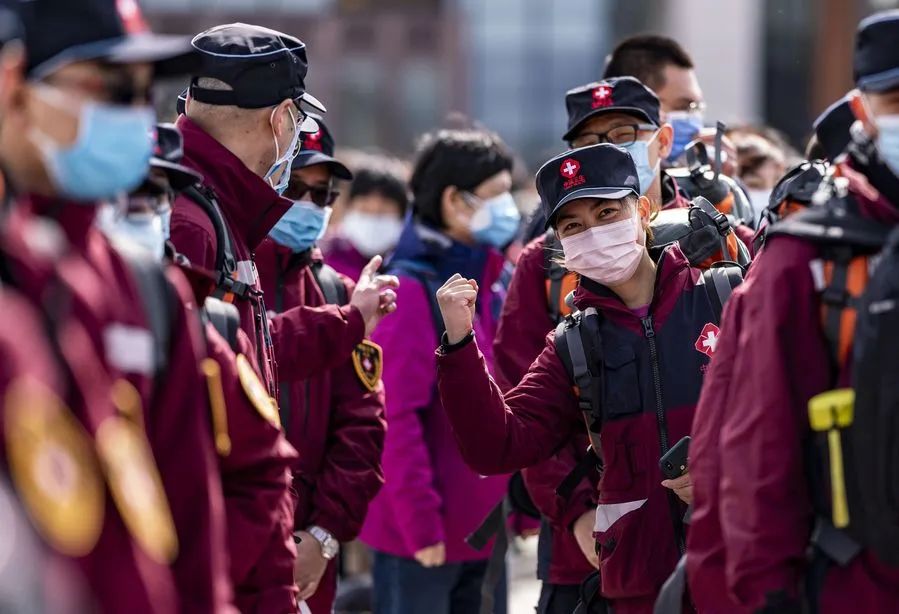Wang Huiyao: COVID-19 is a call for a resilient globalization
April 17 , 2020By Wang Huiyao |
President of the Center for China and Globalization(CCG)
COVID-19 has inflamed debate about the future of globalization. Even before the outbreak, rising protectionism and populism led some to question the wisdom of open borders and long, multi-step supply chains. Now, as contagion and equipment shortages sweep the globe, it seems as though interconnectedness itself is under attack.
The pandemic has shown how deeply entwined all of our fates are. It is also a wake-up call to vulnerabilities in our global systems. But we must diagnose the problem correctly if we are to find the right remedy. The problem with our globalized world isn’t interconnectedness. It’s a lack of “resilience:”the ability to cope with change and shocks.
Interconnection brings us great benefits and can be a source of resilience when well-configured. The early Internet was designed as a communications network able to survive a nuclear attack; its web of connections and in-built redundancy means no single node is critical to its viability.
In nature, interconnected networks like ecosystems and individual organisms involve safeguards such as redundancy, self-regulating mechanisms, and immune systems. It’s one of the reasons we have two kidneys when one can do the job – when it comes to evolution, resilience is a matter of life or death.
Unfortunately, over the last few decades, globalization has taken a form that lacks this kind of resilience to shocks, like pandemics and financial crises.
Since the 1970s, advances in technology and trade liberalization saw supply chains sliced up and spread across continents, often with several tiers and thousands of suppliers. These networks were shaped by shareholder primacy and just-in-time principles, which cut margins razor-thin and optimized for short-term efficiency, rather than long-term resilience.
Global networks for trade, migration, finance, and information grew ever-larger and more complex. This created prosperity, but also risks not offset by prudent planning or adequate global governance mechanisms.
Recent supply chain shocks have exposed this fragility. In 2011, the earthquake in Japan and floods in Thailand rattled production of electronics and automobiles from Tianjin to Texas. Extreme weather events like wildfires hit food supply chains with increasing frequency. The UNDP estimates that climate-change-related work disruption could exceed two trillion U.S. dollars in the U.S. alone by 2030.
Man-made shocks are rising too, with states and non-state actors targeting chokepoints and weak spots in global networks, as seen in drone strikes last year that wiped out five percent of world oil supply.
COVID-19 has again shown the fragilities of our global system. But simply “rewinding” globalization and re-shoring supply chains is neither desirable or possible.
Instead, we must build a more resilient form of globalization, one that retains the benefits of interconnectedness, while enhancing safeguards and response capabilities so we are ready for the next big challenge.

A medical team member poses for a photo before leaving for Xianning City of Hubei Province at Changshui International Airport in Kunming, capital of southwest China’s Yunnan Province, February 12, 2020. /Xinhua Photo
This huge task requires efforts at the local, national, and international levels by governments and industry. More fundamentally, it needs new ways of thinking about reward, risk and uncertainty; a paradigm shift from seeing disasters as “unusual” to recognizing them as inevitable.
The pandemic shows that no country can be resilient alone. We need to beef up multilateral institutions that can build shared awareness of risks and ways to address them, such as the WHO and UN Sendai Framework for Disaster Risk Reduction. This includes mechanisms to coordinate global crisis response and the use of “safety valves” to manage transnational flows of goods, capital, and people if needed.
Amidst the current pandemic, travel bans to limit contagion were enacted in a haphazard, unilateral way that added to panic and discord. An emergency global migration mechanism to coordinate these actions could have done this in a more transparent and orderly way.
Some countries have restricted exports to hoard key supplies, which can set off chain reactions and exacerbate shortages. This could be prevented by re-tooling the WTO to smooth trade flows in times of crisis and coordinate tariff exemptions for crucial supplies.
At the national level, policymakers need to develop and resource strategies to build resilience, investing in preparedness and key infrastructure, while shaping regulatory frameworks that encourage resilience.
Innovation can help crisis-proof globalization. Technologies like big data and smart manufacturing can help firms spot risks early and adapt supply chains and work arrangements in times of disruption. During the outbreak, firms like Alibaba used smart logistics to overcome bottlenecks and deliver essential supplies. Around the world, people have shared blueprints online and used 3D printers to make ventilator valves and other key products.
Companies should embrace these technologies and nurture a culture that values resilience and broad stakeholder interests, rather than just short-term efficiency. Green finance and new disclosure rules are already moving environmental and social costs onto balance sheets. Other steps that can be taken include supply chain mapping, introducing resilience-oriented KPIs, and diversified sourcing or bigger inventories for critical inputs.
Eventually, the current pandemic will pass. But climate change and rapid shifts in geopolitics, technology, and society mean that more shocks are inevitable.
It’s time to forge a more resilient, responsible form of globalization. History shows that upheaval can open new economic possibilities, such as the launch of GATT to boost trade after World War II.
If this dark COVID cloud has a silver lining, it is to force us to re-think our global approach and the need to work together. Change will not come easy or cheap. But investing in resilience can support our beleaguered economy and create jobs, leaving us better prepared for the next crisis.
Topical News See more






